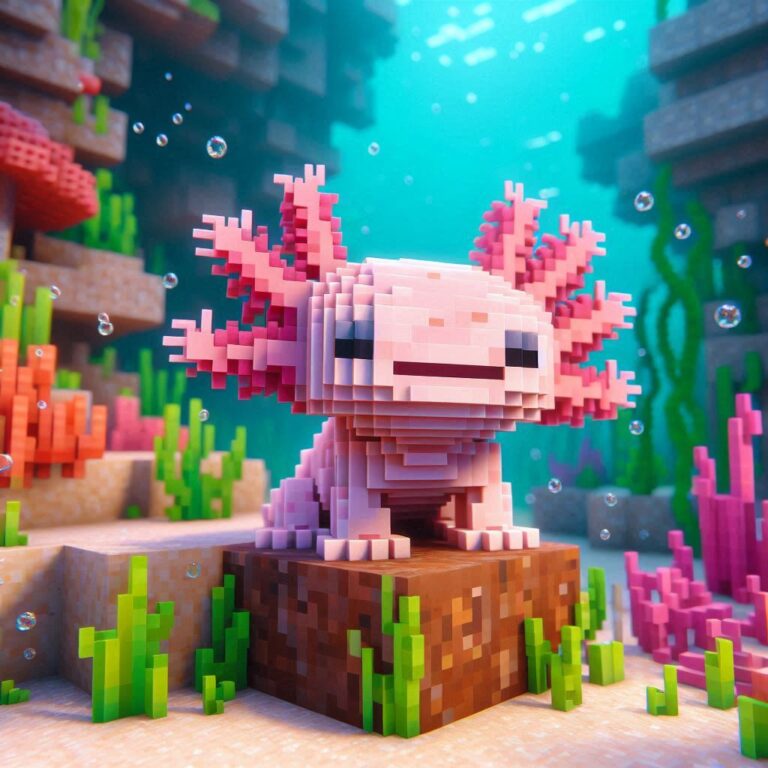
Axolotls can indeed eat morio worms, but it’s essential to consider their dietary needs and the potential impact on their health. While morio worms can be a nutritious addition to an axolotl’s diet due to their protein and fat content, they should not be the sole food source. Axolotls require a varied diet to ensure they receive all the necessary nutrients for optimal health and growth. Therefore, while morio worms can be offered as an occasional treat. It’s crucial to supplement their diet with other live or frozen foods such as bloodworms, earthworms, and brine shrimp, as well as commercially prepared axolotl pellets. Additionally, moderation is key when feeding morio worms to axolotls to prevent overeating and potential health issues such as obesity and digestive problems.
What do Morio Worms Do to the Axolotl
Morio worms, also known as superworms, can play a significant role in an axolotl’s diet, offering a rich source of protein and fat. However, their impact extends beyond mere nutrition. When consumed, morio worms stimulate the axolotl’s natural hunting instincts, providing mental and physical enrichment. As the axolotl captures and consumes the wriggling prey, it engages in a behavior akin to hunting in the wild. Which can enhance its overall well-being. Additionally, the act of pursuing and devouring live prey can help prevent boredom and lethargy in captive axolotls, promoting a more active and stimulated lifestyle. Furthermore, the texture and movement of morio worms can provide beneficial exercise for the axolotl’s jaws and digestive tract, promoting healthy digestion and muscle development.
Effects of Morio Worms on Axolotl Digestive System
When axolotls consume morio worms, their digestive system undergoes a series of processes to break down and absorb nutrients from the prey. The chewing action required to consume live prey like morio worms helps stimulate saliva production, initiating the digestive process. Once swallowed, morio worms travel through the axolotl’s digestive tract, where enzymes and stomach acids work to break down proteins, fats, and carbohydrates. This process facilitates nutrient absorption in the intestines, where essential vitamins and minerals are absorbed into the bloodstream to support overall health and bodily functions. Additionally, the fibrous nature of morio worms can aid in promoting healthy gut motility and preventing constipation in axolotls.
Impact on Axolotl Health and Behavior
Incorporating morio worms into an axolotl’s diet can have several positive effects on their health and behavior. The nutrient-rich content of morio worms contributes to the axolotl’s overall nutritional balance, supporting growth, development, and immune function. Additionally, the mental stimulation provided by hunting and capturing live prey like morio worms can reduce stress and alleviate boredom in captive axolotls, promoting a happier and more active lifestyle. Moreover, the exercise involved in pursuing and consuming prey can help maintain muscle tone and prevent obesity in axolotls, contributing to their overall well-being and longevity. Overall, integrating morio worms into an axolotl’s diet can have holistic benefits for their physical and mental health, enriching their captive environment and enhancing their quality of life.
Nutritional Value of Morio Worms for Axolotls
Morio worms serve as a valuable dietary component for axolotls, offering a diverse array of essential nutrients crucial for their health and vitality. These worms are particularly prized for their high protein and fat content, providing axolotls with the energy and building blocks needed for growth, maintenance, and repair of bodily tissues. Additionally, morio worms contain various vitamins and minerals that contribute to overall metabolic functions, immune support, and reproductive health in axolotls. By incorporating morio worms into their diet. Axolotls can access a well-rounded nutritional profile that mirrors their natural dietary preferences, promoting robust health and well-being.
When exploring the nutritional value of Morio worms for axolotls, it’s important to understand how they contribute to the overall health and well-being of these fascinating creatures, especially when considering the benefits of red worms as a dietary staple.
Protein Content in Morio Worms
Protein is a fundamental nutrient for axolotls, serving as the primary building block for muscles, organs, and other tissues. Morio worms boast a commendable protein content, making them an excellent protein source for axolotls. The protein derived from morio worms provides axolotls with essential amino acids necessary for various physiological processes, including growth, metabolism, and immune function. By consuming morio worms rich in protein, axolotls can maintain optimal muscle mass, support tissue repair, and bolster their overall health and vitality.
Fat Content in Morio Worms
Fat is another essential nutrient for axolotls, serving as a concentrated source of energy and essential fatty acids. Morio worms are notable for their relatively high fat content, making them a valuable energy source for axolotls, especially during periods of increased activity or growth. The fats found in morio worms provide axolotls with vital fatty acids such as omega-3 and omega-6, which play crucial roles in cellular membrane structure, hormone production, and inflammation regulation. By consuming morio worms rich in fats, axolotls can maintain optimal energy levels, support brain function, and promote healthy skin and coat.
Vitamins and Minerals in Morio Worms
In addition to protein and fat, morio worms contain a spectrum of vitamins and minerals essential for axolotl health. These include vitamins such as vitamin A, vitamin E, and various B vitamins, as well as minerals like calcium, phosphorus, and potassium. These micronutrients play diverse roles in metabolic processes, immune function, and overall well-being. For example, vitamin A supports vision and immune function, while calcium and phosphorus are crucial for bone development and muscle function. By consuming morio worms rich in vitamins and minerals, axolotls can meet their daily micronutrient requirements, ensuring optimal health and vitality.
Benefits of Eating Morio Worms for Axolotls
Incorporating morio worms into an axolotl’s diet offers several noteworthy benefits that contribute to their overall health and well-being. These benefits extend beyond mere nutrition and encompass aspects such as enhanced growth and development, enriched diet variation, and stimulation of natural hunting behavior. By regularly consuming morio worms, axolotls can experience improvements in their physical health, mental stimulation, and overall quality of life.
When considering the benefits of eating Morio worms for axolotls, it’s essential to recognize their value as a nutritious food source, even if they’re offered as dead worms as axolotl treats. These worms provide essential proteins and nutrients necessary for axolotl health and vitality.
Enhanced Growth and Development
One of the primary benefits of eating morio worms for axolotls is enhanced growth and development. Morio worms are rich in protein, a crucial nutrient for supporting muscle growth, tissue repair, and overall body development in axolotls. Regular consumption of protein-rich foods like morio worms ensures that axolotls receive the essential amino acids needed for healthy growth and optimal body condition. Additionally, the high-fat content in morio worms provides axolotls with a concentrated source of energy, fueling their growth and metabolic processes. By incorporating morio worms into their diet. Axolotls can achieve faster growth rates and reach their full potential size and stature.
Enriched Diet Variation
Another significant benefit of eating morio worms for axolotls is the enrichment of their diet variation. While axolotls can thrive on a diet of pellets and other commercially prepared foods, offering live prey like morio worms introduces a new and stimulating food source. The varied texture, taste, and movement of live prey provide axolotls with mental and sensory enrichment, preventing boredom and encouraging natural foraging behaviors. By diversifying their diet with morio worms, axolotls can enjoy a more engaging and satisfying feeding experience, leading to improved appetite and overall nutritional intake.
Stimulation of Natural Hunting Behavior
Furthermore, eating morio worms stimulates the natural hunting behavior of axolotls, providing mental and physical exercise. In the wild, axolotls are opportunistic predators, hunting for small aquatic creatures like insects, worms, and crustaceans. By offering live prey such as morio worms, axolotls can engage in instinctual hunting behaviors, including stalking, chasing, and capturing their prey. This interactive feeding experience not only satisfies their natural instincts but also promotes physical activity and mental stimulation. Additionally, the act of hunting and consuming live prey can help sharpen axolotls’ reflexes, coordination, and predatory skills. Overall, the stimulation of natural hunting behavior through the consumption of morio worms contributes to the overall health and well-being of axolotls, ensuring they remain active, engaged, and fulfilled in captivity.
Risks of Eating Morio Worms for Axolotls

While morio worms can provide numerous benefits to axolotls, there are also potential risks associated with their consumption. It’s essential for axolotl owners to be aware of these risks to ensure the health and safety of their pets. Some of the primary risks of eating morio worms for axolotls include the potential choking hazard, allergic reactions, and the risk of parasitic infestation.
Potential Choking Hazard
One of the significant risks associated with eating morio worms for axolotls is the potential choking hazard. Morio worms are relatively large compared to other prey items commonly fed to axolotls, and if not properly sized or chewed, they can become lodged in the axolotl’s throat, leading to choking or blockages in the digestive tract. Axolotl owners should always ensure that the size of the morio worms offered to their pets is appropriate and that the worms are adequately chewed or crushed before being consumed to minimize the risk of choking.
Allergic Reactions in Axolotls
Another potential risk of eating morio worms for axolotls is the possibility of allergic reactions. While rare, some axolotls may be allergic to specific components or proteins found in morio worms. Leading to adverse reactions such as itching, swelling, or respiratory distress. Axolotl owners should monitor their pets closely after introducing morio worms into their diet and be vigilant for any signs of allergic reactions. If an allergic reaction is suspected. It’s essential to discontinue feeding morio worms immediately and consult with a veterinarian for further evaluation and treatment.
Parasitic Infestation Risk
Additionally, there is a risk of parasitic infestation associated with eating morio worms for axolotls. Morio worms, like all live prey, have the potential to carry parasites or pathogens that could infect the axolotl upon ingestion. While proper handling and sourcing of morio worms can help minimize this risk. It’s crucial for axolotl owners to be aware of the possibility and monitor their pets for any signs of parasitic infestation, such as changes in behavior, appetite, or appearance. Regular health checks and quarantine procedures for new prey items can also help mitigate the risk of parasitic infestation in axolotls.
FAQs
Q. Can axolotls eat morio worms exclusively?
A. Axolotls should have a varied diet. While morio worms can be part of their diet, it’s not advisable for them to eat morio worms exclusively.
Q. How often should I feed my axolotl morio worms?
A. Morio worms can be offered as an occasional treat, but they shouldn’t be the primary diet. Once or twice a week is sufficient.
Q. Are morio worms suitable for axolotls of all ages?
A. Morio worms are more suitable for adult axolotls due to their size and nutritional content. Young axolotls may struggle to consume them.
Q. Do morio worms provide any nutritional benefits for axolotls?
A. Yes, morio worms are rich in protein and fats, which can contribute to the overall nutritional balance of an axolotl’s diet.
Q. Are there any alternatives to morio worms for axolotls?
A. Yes, axolotls can also be fed other live or frozen foods like bloodworms, earthworms, brine shrimp, and commercially prepared axolotl pellets.
Q. Can axolotls overeat morio worms?
A. Yes, axolotls can overeat morio worms, leading to health issues such as obesity and digestive problems. It’s essential to feed them in moderation.
Q. Should I gut-load morio worms before feeding them to my axolotl?
A. Gut-loading morio worms with nutritious foods before feeding them to your axolotl can enhance their nutritional value.
Q. How should I store morio worms for feeding my axolotl?
A. Morio worms can be stored in a cool, dark place or refrigerated to prolong their lifespan. Ensure proper ventilation and avoid overcrowding to prevent them from dying off.
Q. Can axolotls eat morio worms if they are frozen?
A. Yes, axolotls can eat frozen morio worms. However, ensure they are properly thawed before feeding to avoid any digestive issues.
Q. Are there any signs that my axolotl is not tolerating morio worms well?
A. Signs of intolerance to morio worms may include loss of appetite, unusual behavior, or digestive problems. If you notice any such signs, discontinue feeding morio worms and consult a vet.
Conclusion
In conclusion, while morio worms offer numerous nutritional benefits and opportunities for enrichment in the diet of axolotls. It’s crucial for axolotl owners to be aware of the potential risks associated with their consumption. Despite their protein-rich content and stimulation of natural hunting behavior, morio worms pose threats such as choking hazards, allergic reactions, and the risk of parasitic infestation. However, with proper precautions, including careful sizing of prey, monitoring for allergic reactions, and sourcing from reputable sources, these risks can be minimized. Ultimately, axolotl owners should strive to provide a balanced and varied diet for their pets. Incorporating morio worms as part of a broader nutritional plan while remaining vigilant for any signs of adverse reactions.

Hassan Shah carries over four years of hands-on expertise in caring for axolotls, guided by his cherished companion ‘Little Bruno,’ a thriving axolotl under his attentive care for three years.



